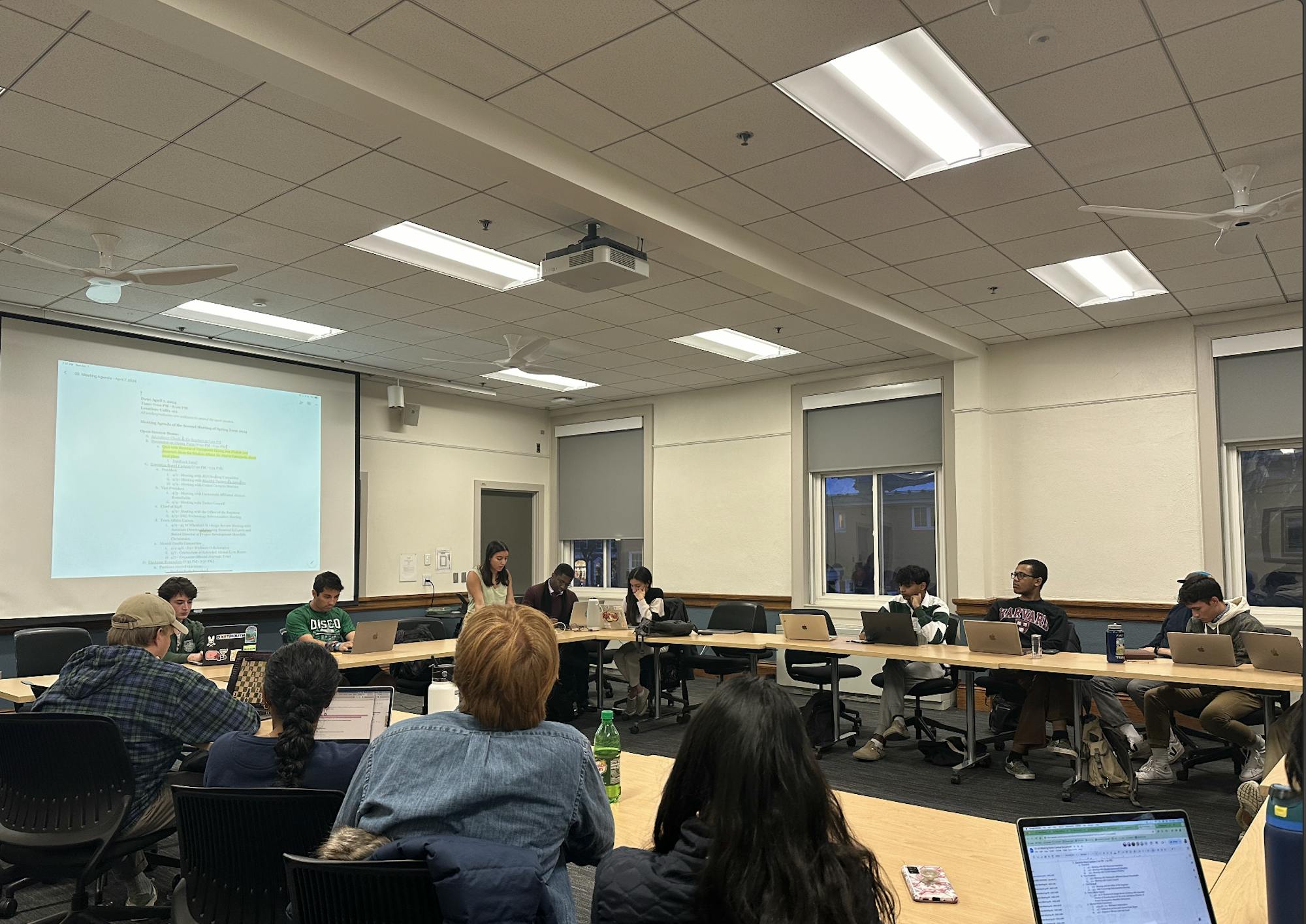On April 7, the Dartmouth Student Government Senate met for its second weekly meeting of the spring term. Led by student body president Jessica Chiriboga ’24, the Senate spoke with Dartmouth Dining director Jon Plodzik and associate dean of student affairs Marco Valenzuela, who recommended changes to the Ivy Unlimited dining plan.
According to Plodzik, Dartmouth Dining is planning to propose changes to the Ivy Unlimited plan — which currently provides $250 in dining dollars and unlimited entry to the Class of 1953 Commons — to the College in response to concerns about food accessibility. Plodzik cited a “spike” in student utilization of the free food pantry in Dick’s House during breaks in between academic terms — the cost of stocking the pantry, which is fully funded by Dartmouth Dining, rose from $3000 per week during the term to $4000 per week during recent interim periods. According to the Dartmouth Dining website, undergraduates who were on campus between terms could use their Dartmouth ID cards to purchase food but could not access a dining plan.
“It feels wrong that we’re an Ivy League school, and someone’s hungry,” Plodzik said. “This is an opportunity to fix some things that are systematically wrong within our [dining] program.”
According to Plodzik, Dartmouth Dining’s proposal for the new Ivy Unlimited plan would maintain the existing system of unlimited entry to the Class of 1953 Commons and include approximately $400 in dining dollars, a $150 increase from the previous amount. Plodzik added that under the new proposal, late night dining would be all-you-can-eat instead of à la carte.
Additionally, the proposed plan would allow unlimited dining dollars to roll over from previous terms, instead of the maximum of $100 that currently carries over. The Fern and Ramekin would begin to accept meal swipe equivalencies, and breakfast and lunch swipe equivalencies would increase from $5.25 and $7.75 to $6.25 and $8.50, respectively. “Residential students” would be required to use the unlimited plan, which is currently only mandatory for first-year students. The specifics of who is included in this category are still under consideration, Plodzik said.
Valenzuela estimated that the new meal plan would cost approximately $130 more than the Ivy Unlimited plan currently does. The current plan costs $2,447, according to the Dartmouth Dining website.
West House senator Crawford Hovis ’25 said students should be able to decide if the new meal plan is “worth” the more expensive cost. He suggested trialing the updates by making the new plan available but not mandatory during an upcoming term — thus allowing students to decide whether they support the new plan before it potentially becomes required.
East Wheelock House senator Daniel Pruder ’27 asked Plodzik if Dartmouth Dining believes people will willingly switch to the new Ivy Unlimited meal plan if it is offered. Plodzik said that it will not be possible to cover the costs of implementing unlimited access to late night without mandating that all residential students be on the new unlimited meal plan.
Anushka Saxena ’27, a member of the public who attended the Senate meeting, said it is difficult for her, as a vegetarian, to eat nutritious meals on campus. She cited limited fresh fruit and vegetable options and the low equivalency value of meal swipes.
“There are some fresh fruits that are offered in the [Courtyard Cafe], but I find that sometimes they aren’t covered by the full meal swipe,” she said.
During the meeting, the Senate also appointed people to the four remaining executive positions for the spring, which is a process that occurs at the beginning of every term. Ian McKenna ’27 will serve as finance director, while Favian Harvard ’26 will serve as deputy finance director. Evan Gerson ’27 will serve as deputy town affairs liaison. McKenna will also serve as co-communications director with Alejandra Carrasco ’25. The Senate previously appointed 10 people to positions in their meeting last week.
DSG Senate meetings occur weekly on Sundays at 7 p.m. in Collis 101 and are open to all students.
Correction Appended (April 9, 11:14 a.m.): A previous version of this article erroneously stated that the Student Government Senate issued 11 appointments at its last meeting. In fact, it only made 10 appointments. The article has been corrected.
Annabelle Zhang '27 is a reporter and editor from New Jersey. In the classroom, she studies Geography and Government modified with Philosophy and Economics. She enjoys creating recipes, solving puzzles and listening to music.




